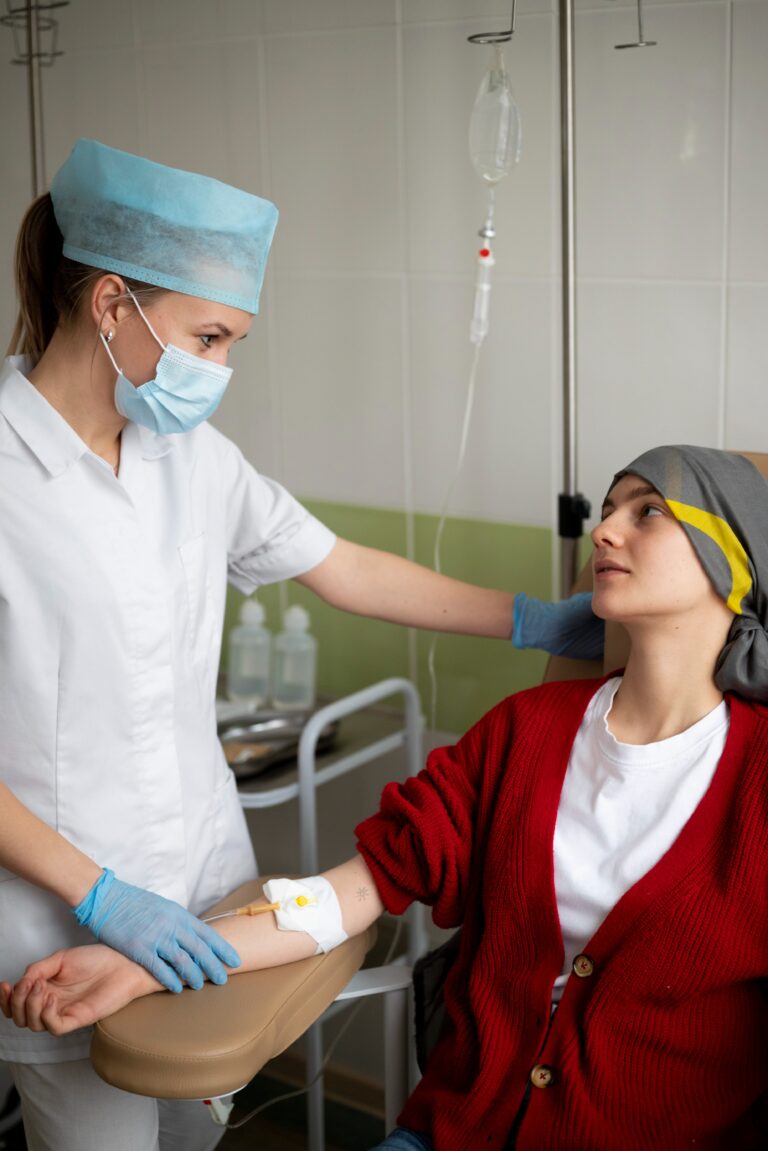How Does Immunotherapy Work?

immunotherapy for cancer treatment
Immunotherapy is a revolutionary cancer treatment that helps your immune system attack cancer more effectively. But how precisely does it work? Let’s break it down in simple terms.
What Is Immunotherapy?
Your body's defensive force – the immune system, combats illnesses and infections. However, occasionally, cancer cells deceive the immune system by evading it or even undermining its defences. Your immune system is strengthened or retrained to identify and eliminate cancer cells through immunotherapy.
How Does It Work?
The goal of all forms of immunotherapy is to improve the function of your immune system. This is how it works:
- Immune Checkpoint Inhibitors – Removing the Brakes
There are "checkpoints" (similar to brakes) in your immune system to stop it from attacking healthy cells. These checkpoints can occasionally be used by cancer cells to conceal themselves. By blocking these brakes, medications known as checkpoint inhibitors (such as Keytruda or Opdivo) allow immune cells to target cancer. - CAR T-Cell Therapy – Supercharging Immune Cells
Your immune cells (T-cells) are taken, altered in a lab to better identify cancer, and then reintroduced into your body as part of this treatment. These "supercharged" cells then hunt down and destroy cancer cells. - Cancer Vaccines – Training the Immune System
Certain cancer vaccinations (such as Provenge for prostate cancer) teach your immune system to target cancer cells that are already there, in contrast to standard immunizations that prevent infections. - Cytokines – Boosting Immune Signals
Cytokines are natural proteins that help immune cells communicate. To boost your immune response against cancer, immunotherapy may include synthetic forms like interleukin-2 or interferon.
Who Can Benefit from Immunotherapy?
Immunotherapy has demonstrated exceptional success in treating melanoma, lung cancer, lymphoma, and certain other forms of cancer, while it is not effective for all cancers. Physicians can use it alone or in combination with radiation or chemotherapy.
Side Effects of Immunotherapy.
Immunotherapy can occasionally result in flu-like symptoms, exhaustion, or even overreactive immunological responses (such as inflammation in healthy organs) since it stimulates the immune system. But compared to chemotherapy, side effects are frequently less severe.
The Future of Immunotherapy
Immunotherapy is continuously being improved on by researchers to treat more cancers with fewer side effects. It's among today's most promising developments in cancer treatment!












